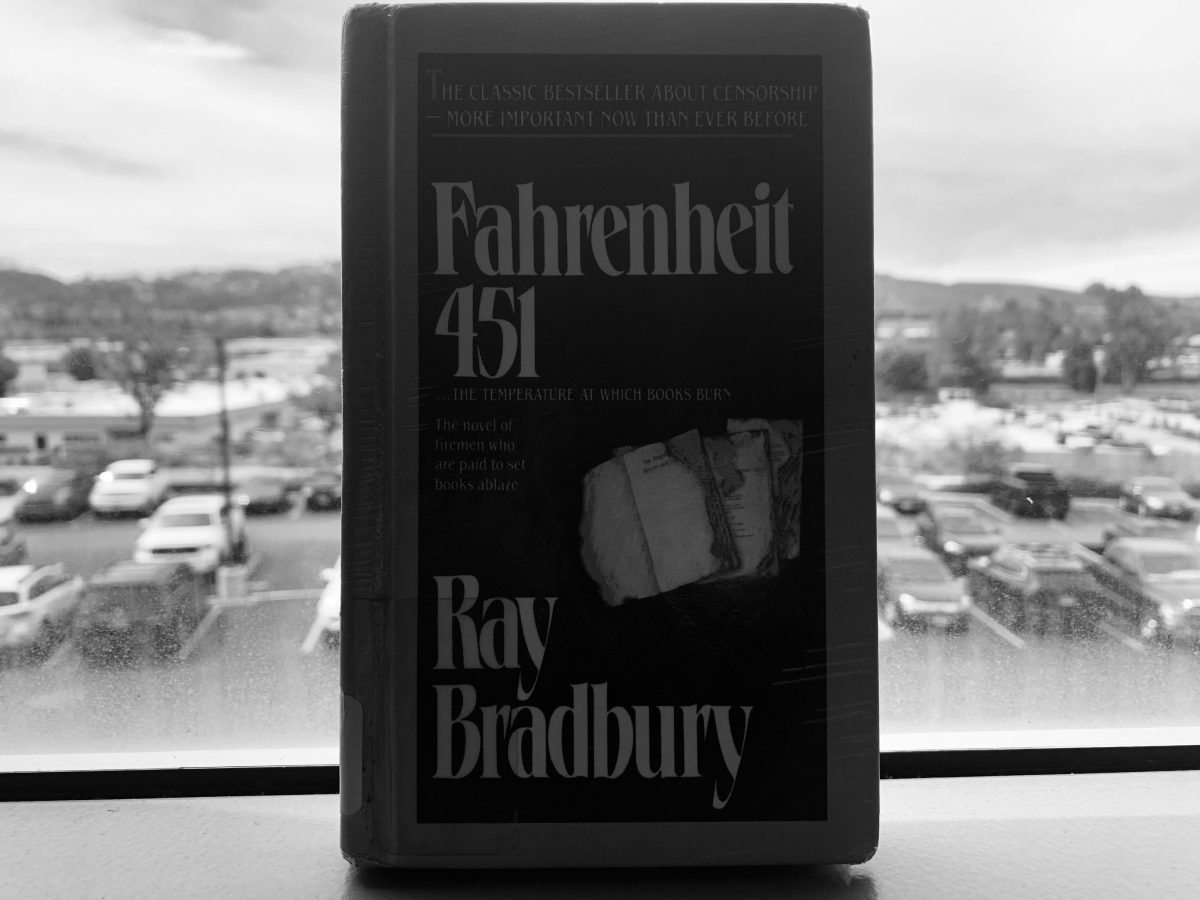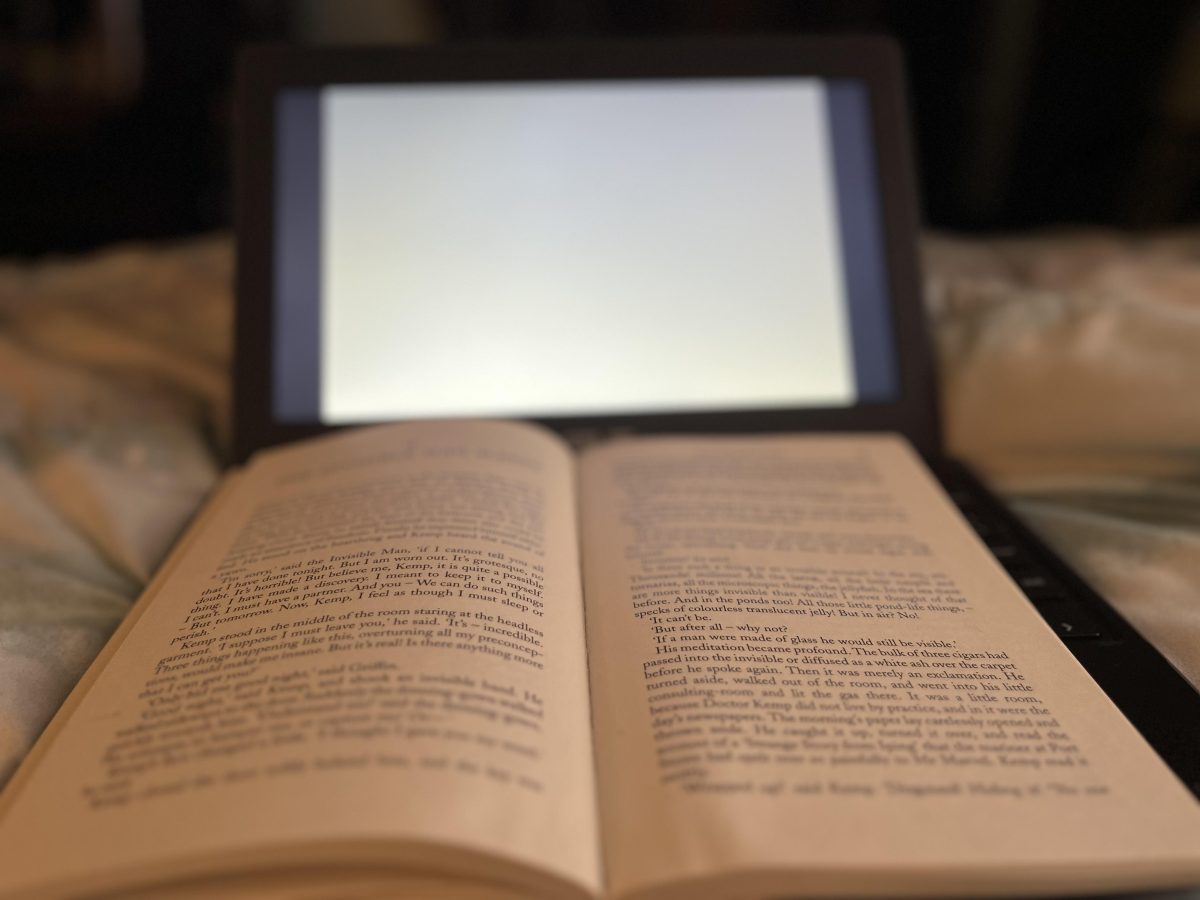Throughout history, banning books is often a sign of censorship, a way to silence a minority or voice. As we move forward in time, this issue still remains prevalent within our society and consistently appears in the media as commentary about restrictions.
“I read a book in sophomore year—it’s called Fahrenheit 451. It’s basically about a society where books are completely banned—hunted down to destroy all books [using fire]. So the whole premise of it was that history was erased from the whole society there. This way, politicians are capable of controlling what people can think, because they won’t even be aware of past history. Not related to the story, but it’s just a fun fact, the book’s title is actually a reference to the degree [at which] books burn,” said senior Isabella Retief.
Fahrenheit 451 was written in 1953 by American writer Ray Bradbury; the objective was to write a dystopian society, which when looked into, aligns to what is seen nearly three quarters of a century later in our lives. Further back, before Ray Bradbury’s era, ancient China had experienced similar mandated bans during the reign of the first emperor, Qin Shi Huang in 231 BCE.
“He wove them into the historical narrative as evidence of the emperor’s increasing paranoia and as omens of his imminent loss of Heaven’s favor. In the first incident, the First Emperor decreed that private copies of the Book of Documents, Book of Songs, and the histories of the defeated rival states be banned and turned over to the authorities for destruction. This literary inquisition resulted in an enormous loss of historical knowledge and cultural heritage and earned the First Emperor the enmity of book-revering Confucian scholars for two millennia,” said sources from China.usc.edu by UCLA Sammy Yukuan Lee.
In a similar manner, during the ruling of Julius Caesar and his raid on Pompey in 47-48 BCE, the Library of Alexandria was destroyed, although motives of the destruction remained unclear, as this event is still shrouded in mystery.
The importance of books within society makes itself known through the extensive archived knowledge inside them, allowing humanity to learn from the past or progress forward in any given field. The silencing of books through bans or destruction becomes an alarm to not allow things to be forgotten or shut down, ultimately slowing down progress of society.
Categories:
Banned Books: A Brief Retrospective
Photo by Christopher Ornelas
Fahrenheit 451 by Ray Bradbury is a fictional world following a firefighter living in a dystopian society in which all previous history recorded by literature is swept under the rug via burning. This book shares parallels with current day happenings and events seen through history. The extensive history of book banning has always been present in life.
Story continues below advertisement
More to Discover
About the Contributor

Christopher Ornelas, Staff Writer
(he/him) Chris Ornelas is a Senior who had joined the staff due to external forces beyond his control. With no previous experiences within this field, he is hoping to learn more about the school and the life within it. Being the last year he’ll be in high school, putting in an effort to be more involved within the school. Being a good writer, he is capable of learning new skills to be a good journalist. As long as he writes one good article, it’s worth the time spent.







